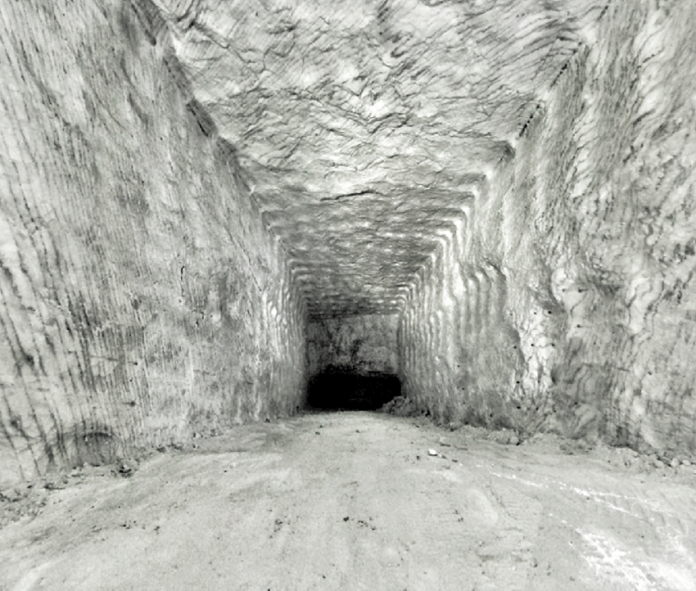
The role of salt in the Bible is relevant to understanding Hebrew society during the Old Testament and New Testament periods. Salt is a necessity of life and was a mineral that was used since ancient times in many cultures as a seasoning, a preservative, a disinfectant, a component of ceremonial offerings, and as a unit of exchange. The Bible contains numerous references to salt. In various contexts, it is used metaphorically to signify permanence, loyalty, durability, fidelity, usefulness, value, and purification. In ancient Rome, salt on the table was a mark of a rich patron; those who sat nearer the host were “above the salt”, and those less favored were “below the salt”.
“A French folktale tells of a princess, who declares to her father the king, “I love you like salt!” He, being angered by the perceived slight, banishes her from the kingdom. Only sometime later, when he is denied salt, does he realize its value and therefore the depth of his daughter’s love.
 Recently we studied as a church in the Come Follow Me manual, the Sermon on the Mount, wherein the Savior declared to his disciples, “Ye are the salt of the earth” (Matthew 5:13). Salt is so common nowadays, that it’s easy to not think much of the Savior’s statement. But it wasn’t always so. In Mark Kurlansky’s NY times bestseller titled, “Salt – a World History” he stated, “Salt is now so common, so easy to obtain, and so inexpensive that we have forgotten that from the beginning of civilization until about 100 years ago, salt was one of the most sought-after commodities in human history.” A greater understanding of salts role in the economies of ancient civilizations can bring deeper insights.
Recently we studied as a church in the Come Follow Me manual, the Sermon on the Mount, wherein the Savior declared to his disciples, “Ye are the salt of the earth” (Matthew 5:13). Salt is so common nowadays, that it’s easy to not think much of the Savior’s statement. But it wasn’t always so. In Mark Kurlansky’s NY times bestseller titled, “Salt – a World History” he stated, “Salt is now so common, so easy to obtain, and so inexpensive that we have forgotten that from the beginning of civilization until about 100 years ago, salt was one of the most sought-after commodities in human history.” A greater understanding of salts role in the economies of ancient civilizations can bring deeper insights.
Of course time does not allow an exhaustive review, so hopefully a few examples predating and contemporary to the time of Christ will suffice. These examples, and many more, are found in Mark Kurlansky’s book.
Chinese historians date the first saltworks in China to around 6,000 BC. Many years later in 221 BC, the Chin state of China defeated its last rivals and its ruler became the first emperor of united China. They developed a price-fixing monopoly on salt and iron that kept the prices for both excessively high. This is the first known instance in history of a state-controlled monopoly of a vital commodity. They used the salt revenues to build armies as well as the Great Wall which was designed to keep Huns and other barbarians from the north out of China.
 Many of us probably have some Celtic blood. The Celts date to around 1200 BC and lived in what is now Hungary, Austria and Bavaria. The romans called them Gaul’s, which originated from the Greek word hal, meaning salt. They were the salt people. They were expert in salt mining and their economy was based on salt and iron. The German and Austrian towns of Halle, Hallein, Swabisch Hall, and Hallstatt were all named for Celtic saltworks. The Celts used rivers for trade and conquest as they moved into France, northern Spain, Belgium, the British Isles and the Mediterranean. By 51 BC, the Celts had largely been defeated by Julius Caesar and the Romans, except of course for some isolated groups in England, Wales, Ireland, Scotland, the Isle of Man and the Brittany peninsula.
Many of us probably have some Celtic blood. The Celts date to around 1200 BC and lived in what is now Hungary, Austria and Bavaria. The romans called them Gaul’s, which originated from the Greek word hal, meaning salt. They were the salt people. They were expert in salt mining and their economy was based on salt and iron. The German and Austrian towns of Halle, Hallein, Swabisch Hall, and Hallstatt were all named for Celtic saltworks. The Celts used rivers for trade and conquest as they moved into France, northern Spain, Belgium, the British Isles and the Mediterranean. By 51 BC, the Celts had largely been defeated by Julius Caesar and the Romans, except of course for some isolated groups in England, Wales, Ireland, Scotland, the Isle of Man and the Brittany peninsula.
Speaking of the Romans, most Italian cities were founded proximate to saltworks, staring with Rome. The first of the great Roman roads, the Via Salaria, or Salt Road, was built to bring salt to Rome and across the interior of the peninsula. As the Romans became ambitious empire builders, they needed salt for their soldiers, horses and livestock. At times soldiers were even paid in salt, which was the origin of the word salary and the expression “worth his salt”. In fact, the Latin word sal became the French word solde, meaning pay, which is the origin of the word, soldier. Romans developed saltworks throughout their expanding world, establishing them on seashores, marshes, and brine springs throughout the Italian peninsula. By conquest they took over not only Hallstatt, Hallein, and the many Celtic works of Gaul and Britain but also the saltworks of the Phoenicians and Carthaginians in North Africa, Sicily, Spain, and Portugal.
They acquired Greek works and Black Sea works and ancient Middle Eastern works including the saltworks of Mount Sodom by the Dead Sea. All of this occurring in and around the time of the Savior’s earthly ministry.
 Salt was important to these early economies, because salt is required to live. When sodium, an unstable metal that can suddenly burst into flame, reacts with a deadly poisonous gas known as chlorine, it becomes the staple food sodium chloride, NaCl, or table salt. Chloride is essential for digestion and in respiration. And without sodium, which the body cannot manufacture, the body would be unable to transport nutrients or oxygen, transmit nerve impulses, or move muscles, including the heart.
Salt was important to these early economies, because salt is required to live. When sodium, an unstable metal that can suddenly burst into flame, reacts with a deadly poisonous gas known as chlorine, it becomes the staple food sodium chloride, NaCl, or table salt. Chloride is essential for digestion and in respiration. And without sodium, which the body cannot manufacture, the body would be unable to transport nutrients or oxygen, transmit nerve impulses, or move muscles, including the heart.
Clearly salt is valuable, but it’s not the only commodity of value that the Savior could have used. Why did He not say, “Ye are the frankincense of the earth” or, “ye are the money of the earth”? I don’t presume to know why the savior selected the words he did, but besides being essential for life, three other characteristics of salt lend to the symbolism of the Saviors declaration: salt preserves, salt seals, and salt enhances flavor.
Salt Preserves

Salt creates a hostile environment for bacteria and destructive enzymes, thereby preventing decay. In 1573, salt miners in the Durnberg mountain mine near the Austrian town of Hallein, discovered a man, 9 hand spans in length, with flesh, legs, hair, beard and clothing in a state of non-decay. He was wearing pants, a woolen jacket, leather shoes, and a cone-shaped felt hat. The bright colors of the patterned clothing – plaid twill with brilliant red – were strikingly well preserved. The interesting thing…the body was carbon dated to 400 B.C. almost 2,000 years earlier. For thousands of years, until the invention of canning, salt was used to preserve fish, meats, grains, and vegetables so that they didn’t need to be consumed right away.
Salt Seals
Under the proper conditions of pressure and humidity, salt becomes viscoelastic thereby allowing it to self heal cracks in its structure. This ability to seal makes it an ideal medium for storing things in over long periods of time. In fact the company I work for is in the business of storing gases, compressed air, and liquids (pretty much anything except water) in salt caverns 3,000 feet underground. Another fun fact: our nation’s strategic petroleum reserve of 649 million barrels of oil is stored in salt caverns along the gulf coast in Texas and Louisiana, providing 143 days of import protection.
Salt Enhances Flavor
This characteristic is perhaps the most well understood. If you haven’t salted a cantaloupe, or a watermelon, or an apple…don’t. It can be addicting.
Covenants

With these characteristics of salt in mind it’s clear that the Savior’s statement “Ye are the Salt of the earth” is both a compliment, and a weighty charge. How then do we answer this charge?
How do we prove that we’re “worth our Salt”? How do we go about “salting” the earth?
I have come to believe that one of the most important ways, is for us to honor our covenants.
When we were baptized, each of us covenanted to: take upon ourselves the name of Christ, keep His commandments, and always remember Him (Moroni 4). We also covenanted, as Alma taught, to bear one another’s burdens, to mourn with those that mourn, to comfort those that stand in need of comfort, and to stand as witnesses of God at all times, in all things, and in all places, even unto death(Mosiah 18:8-10) Furthermore, those who have entered into God’s holy temples have entered into covenants that we will be obedient to God’s commandments, that we will be selfless, that we will live clean, pure, and chaste lives, and that we will develop and dedicate ourselves to God’s holy purposes.
In 1833 Joseph Smith received a revelation which included the following, “When men are called unto mine everlasting gospel, and covenant with an everlasting covenant, they are accounted as the salt of the earth and the savor of men” (D&C 101:39). Did you catch that? When we covenant with an everlasting covenant, we are accounted as the salt of the earth and the savor (flavor) of men.
It’s interesting that under the law of Moses, priests in the Temple put salt on all of the offerings of grains and meats before placing them on the altar. The phrase “covenant of salt” is used in the Old Testament to signify the immutable and everlasting nature of covenants between God and man (see Numbers 18:19; 2 Chronicles 13:5).
Just as salt preserves, seals and adds flavor, our covenants preserve, seal, and add flavor to not only our own lives but also to all kindreds of the earth.
Covenants Preserve
 When our baptismal and temple covenants become the defining focus of our life, rather than just one of the many influences, we create a hostile environment where the influences of the adversary cannot thrive, thereby preventing moral decay and the inherent unhappiness (our or somebody else’s) that always accompanies it. Does this mean that we’re perfect or won’t have temptations? Of course not, but the serious transgressions will be so far back in the rearview mirror that they won’t have any impact on us.
When our baptismal and temple covenants become the defining focus of our life, rather than just one of the many influences, we create a hostile environment where the influences of the adversary cannot thrive, thereby preventing moral decay and the inherent unhappiness (our or somebody else’s) that always accompanies it. Does this mean that we’re perfect or won’t have temptations? Of course not, but the serious transgressions will be so far back in the rearview mirror that they won’t have any impact on us.
As a group, those who make and keep sacred covenants can halt the spread of moral decay by living righteously and being a force for good. They also sometimes help prevent the judgements of God from falling on societies that have ripened in iniquity (Helaman 13:14)
Covenants Seal
Through the power of the priesthood and our temple covenants, we are sealed with our loved ones for eternity. Our covenants connect us to our ancestors and to our offspring. And when we are faithful to our covenants, we seal up the Lord’s promised blessings. He cannot break his part of a covenant when we honor ours. This qualifies us for his spirit to always be with us and the promised blessings of strength and power to care for our families.
Covenants Enhance the Flavor of Life

Commitment to our covenants enhances the pleasing flavors of life. Peace, tranquility, confidence and joy can be felt, even amidst life’s stern trials. The world preaches fun. Fun is the
result of amusement, but fun is fleeting. Joy is rooted in the Savior and in covenant keeping. Joy is enduring and is not dependent on circumstances. Is fun bad? of course not, but Lehi did not say, “Men are that they might have fun, rather Men are that they might have joy.”
President Nelson stated, “Your commitment to follow the Savior by making covenants with Him and then keeping those covenants will open the door to every spiritual blessing and privilege available to men, women, and children everywhere.”
And Elder Bednar taught, “Enduring joy is not a blessing reserved for a select few. Rather, every member of the Lord’s restored Church who is striving to remember and honor sacred covenants and keep the commandments can receive this gift, according to God’s will and timing.” (Elder Bednar Dec 2018 BYU Devotional)
One of President Nelson’s themes seems to be enduring joy. In his first conference talk as the prophet he proclaimed, “Our message to the world is simple and sincere: we invite all of God’s children on both sides of the veil to come unto their Savior, receive the blessings of the holy temple, have enduring joy, and qualify for eternal life.” (President Nelson, April 2018)
Add Flavor to the world
When we are committed to our covenants, we are motivated to love and serve God and to love and bless the lives of those around us. After Abraham’s trial of faith with Isaac, the Lord personally appeared and made a covenant with him. Among the promises made by the Lord was the assurance that all the nations of the earth would be blessed through his seed. This covenant is called the Abrahamic covenant. So important were the promises given, that God appeared and renewed them with Isaac and Jacob whose name was changed to Israel. And in the latter days God the Father and his Son Jesus Christ established once again the Abrahamic covenant, this time through the Prophet Joseph Smith.
In D&C 124:58 we read “And as I said unto Abraham concerning the kindred of the earth, even so I say unto my servant Joseph: In thee and in thy seed shall the kindred of the earth be blessed.” In the temple, through the authority of the sealing power, the blessings of the Abrahamic covenant are conferred upon us and we become heirs to all the blessings of Abraham, Isaac, and Jacob. (See Russell M. Nelson BYU Devotional 1989).
And so as children of the covenant we go out to all kindreds of the earth, to preach the good news of the Gospel, to flavor the earth with the enduring joy that comes through the plan of happiness. We build temples all over the world and invite all of God’s children on both sides of the veil to come unto their Savior, receive the blessings of the holy temple, and have enduring joy. This is how we fulfill the Savior’s charge to be the salt of the earth and the savor of men.
It seems significant that the headquarters of the Church of Jesus Christ of Latter-day Saints is headquartered in Salt Lake City.
In closing, it’s interesting to note that salt does not lose its savor with age. Salt loses its savor when it becomes contaminated. “But if the salt shall lose its savor, wherewith shall the earth be salted? The salt shall be thenceforth good for nothing, but to be cast out and to be trodden under foot of men.” (3 Ne. 12:13) Here again, keeping our covenants helps keeps of from the impurities that make us “good for nothing” in terms of salting the earth.
In Doctrine & Covenants 25, we read, “Wherefore, lift up thy heart and rejoice, and cleave unto the covenants which thou hast made.” (DC 25:13)
For those of you under the age of 8, I encourage you to prepare yourselves for the waters of baptism. Learn about the covenants that you will be making. If you have not yet been to the temple or do not have a current temple recommend, I invite you to take the steps necessary to attend the temple. It may take humility, honesty, repentance, but it will be worth it. And for those with temple recommends, please attend the temple and enjoy the power and blessings that come through temple service.
We are the salt of the earth. As such we are vitally important to God. We have been called to be the savor of men. May we salt our families, our neighborhood, our schools, our places of employment, and everywhere we have influence with the power and love of God and the testimony of our Savior’s Atonement.” Bishop J Farr Bountiful, Utah March 2019





